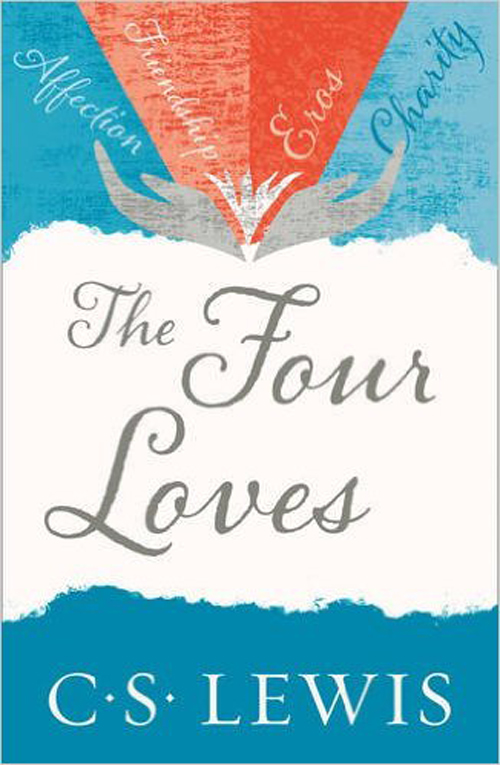He can help us be more intentional with how we use the word, and appreciate how we experience it.
Lenten Campaign 2025
This content is free of charge, as are all our articles.
Support us with a donation that is tax-deductible and enable us to continue to reach millions of readers.
I wake up every morning like most of my millennial compatriots — swilling a cup of meticulously ground, measured, and uniquely brewed coffee (pour-over is my go-to). I “love” my coffee. I’m not alone; our entire culture has developed a semi-concerning infatuation with the beverage.
I’ve also been married for five years, and I’ve told my wife, Meghan, that I love her thousands of times. I travel just about every week and I always make sure to tell her I love her right before I head out the door. I also shoot her a quick text reminding her that I love her before taking off. But curiously, I’ve probably proclaimed my love for coffee just as often.
The Catholic theologian, author and speaker Dr. Edward Sri speaks often on this, describing our tendency to use the word “love” for the most benign things. Of course, I don’t have as strong an affection or desire for coffee as I do for my wife, but I constantly find myself lacking the eloquence to express myself in any different way.
The English language is so limited when it comes to those four letters, which have some of the biggest implications of any combination of letters in the history of the written or spoken word. And I fear that my all-too-human heart is just as limited. So, I’ve been trying to become more intentional in how I use the word and more appreciative of the many ways I experience it.
So I brewed a pot of coffee (the natural starting point of my inquiry), poured a cup and turned to my trusted friend, Clive Staples Lewis, for insight and guidance.

C.S. Lewis contemplated the same question during his lifetime, and penned his classic The Four Loves in response to his search for the answer to: “What do we mean by love?” He found that the ancient Greeks weren’t so tongue-tied and differentiated their terms for love quite a bit more accurately than we are able to.
The first type of love he described was “affection” …
Our biology works to bring about affection. I thought back to the moment I first held my daughters and the overwhelming affection I had for them. I was instantly bonded. It also grows with familiarity. I recalled back to countless nights pouring a couple glasses of wine and watching a sitcom with Meghan, not even needing to speak — just sitting in each other’s company and enjoying the familiarity. I thought about what a relief it was to be able to put my formal manners aside and just be myself whenever I walk in the door, and of the many moments where we paved the way to this blessed informality as we got to know each other through dating. Yes, I have an abundance of affection for my wife, but I can say I get some shade of familiar comfort from my morning coffee as well. I get that swell of affection when my two-year old makes doe eyes at me. I have an extra bond with my wife.
The second type Lewis described was “friendship” …
We often fail to value friendship as a valid form of love. We don’t tend to seek real friendship in general (at least in the case of the modern male), preferring the superficial realm of companionship. We work with our companions, share a job with them, and talk shop with them. But we bond with our friends. We stand shoulder to shoulder, whether it be a sports team or stamp-collecting club or a philosophy of life. We journey together with friends.
Once again, I think of my wife and our friendship — how we bonded over board games, fine Bourbon and craft beer, Prison Break and The Walking Dead and our faith and virtue. We also stand shoulder to shoulder, journeying the great a wearying path of parenthood together. We have a deep friendship, for sure, but there is another natural layer to the love we share.
We also have “romance” …
Sure, the romance is buried under a pile of laundry at times, and drowned out by the wailing of two toddlers at others, but it is still present. This love gives you butterflies on a first date and makes you really lean into your wedding vows when you proclaim them. It allows you to say that you would rather suffer heartache and pain (“in good times and in bad”) than be without your beloved. And I can say I very much have that for Meghan.
But there is a deeper type of love driving all of these loves…
All of these loves are instruments for “charity” — the ultimate form of love.
Charity keeps me washing the dishes, balancing the checkbook, sacrificing my own personal happiness at various moments for the sake of my wife. Charity allows my marriage to be a vocation that I live and not just a choice of roommate. It rekindles my affection, friendship, and romance with Meghan. And ultimately it makes me want to get up, brew another pot of coffee and share this whole conversation with her. Not a bad meditation for a morning’s cup of sludge.

Read more:
C.S. Lewis tells you what to read








